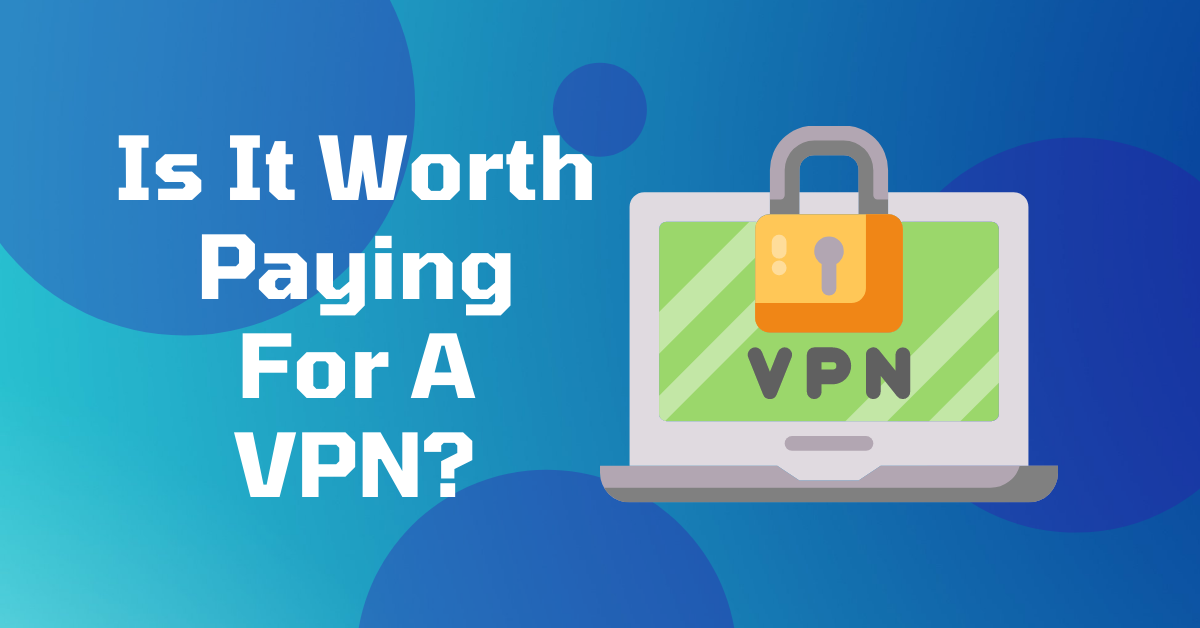Here, we answer the question – is it worth paying for a VPN?
Over the years, VPNs (virtual private networks) have been growing steadily. The number of people using VPNs has increased massively in recent times.
As reported by Atlas VPN, the global VPN adoption index revealed that people from 87 selected countries downloaded VPN applications over 277 million times in 2020. In H1 2021, the number reached 616 million.
Is a VPN worth paying for? Yes, your VPN is worth every dime you pay for it. The benefits of using a VPN significantly outweigh the affordable subscription fee – which will not break the bank. Using a paid VPN is better than using no VPN or a free VPN.
READ ALSO: Best VPN Deals For Christmas
In this article, you will learn why paying for a VPN is worth it and why settling for a free VPN may be worse than not using one at all. Grab a cup of coffee; let’s dive right into it!
Table of Contents
Why Is A VPN Worth Paying For?
A VPN is worth paying for because of what you can gain when you use it. The benefits of using a paid VPN include:
- Online Security
- Access Geo-Blocked Content
- Bypass Censorship
- Avoid Price Discrimination
- Affordability
Online Security
Given the threat landscape of the internet, securing your internet activities and covering your online trails should be a priority.
The sensitive information you share online – like passwords, credit card numbers, and other personal information – can be stolen if you fail to secure them. This is where VPNs come in!
A VPN encrypts your web traffic, making it difficult for malicious cyber actors to interpret it. When using a VPN, no one can see what you are doing online – even using unsafe Wi-Fi.
A VPN enables you to keep your online activities out of the reach of prying eyes, trackers, hackers, ISPs, etc.
Access Geo-Blocked Content
A VPN service helps you enjoy your favorite content when you are in a country where the content is not accessible.
Many websites and streaming services make their content unavailable in some regions – geoblocking. A VPN helps you get around geoblocking, allowing you to log into servers in other countries.
For instance, you can connect to a server in the U.S. while in South Korea. When you do this, you will get a new IP address, making it look like you are in the U.S.
The implication is that you can access U.S. content that is unavailable in South Korea. A VPN helps you access geo-blocked content with a few clicks.
READ ALSO: Best Paid Antivirus According To Reddit Users
Bypass Government Censorship
Some countries censor the internet and restrict citizens’ access to websites and streaming services.
If you live or travel in such a nation, a VPN can help you overcome censorship. China is leading in terms of internet restrictions – popular platforms like Google, Whatsapp, YouTube, Facebook, etc., are inaccessible in China.
However, with a good VPN, you can bypass censorship and enjoy platforms or services of your choice. An average VPN may not be practical because some government censorship – like that of China – can be challenging to overcome.
As a result, it requires using a VPN with advanced features like obfuscation technologies to bypass restrictions and make ISPs think you are not using a VPN.
Avoid Price Discrimination
Many international brands offer prices of goods and services based on region. This is done to make products affordable in some regions or countries, irrespective of the state of their economies.
Some regions are economically better than others. Consequently, prices of goods and services can be higher in such regions than in low-income areas.
For example, flight tickets have been found to vary based on location on many occasions. If you notice a price variation when shopping online, you can get the best deals with a VPN.
All you need to do is connect to a server in the region where the best deal is available and check out as though you are shopping from there.
Affordability
In addition to being highly beneficial, VPNs are affordable. If you can get all the above benefits for a few dollars, why not pay for it? For yearly or multi-year subscriptions, the price of a good is about $4.
It can be as high as $11 when paying monthly. The value you get from a VPN is worth more than the subscription fees. VPNs are highly beneficial and worth paying for!
Why A Free VPN May Not Be The Best For You?
 You may have considered settling for a free VPN to save money. It sounds like an intelligent approach. However, it is an option you may regret in the long term. The following are the reasons you should avoid free VPNs.
You may have considered settling for a free VPN to save money. It sounds like an intelligent approach. However, it is an option you may regret in the long term. The following are the reasons you should avoid free VPNs.
Reliability
The provider does not owe you a reliable service if you are not paying for it. Using a free VPN may defeat the primary purpose of VPNs since the security of your internet activities is not assured.
As expected, companies will not go out of their way to spend a lot of money to ensure the maximum privacy and security of free users. In a nutshell, free VPNs are unreliable – ranging from security to other best practices.
Data Logging and Selling
A famous African saying is, “Nothing is free, even in Freetown.” There is no free lunch anywhere.
A provider offering free access to their product may have other ways of making money from free users.
One such way is by collecting and selling users’ data. They can monetize your data by monitoring your internet activities and selling them to third parties – mainly for marketing.
Free VPNs Will Not Give You What You Want
There are many demerits to using a free VPN, and the key takeaway is that a free VPN can not offer premium protection.
Ugly experiences with free VPNs range from adverts and traffic manipulation to poor performance.
With a free VPN service, you will likely experience a limited number of servers, slow speeds, low-quality apps, poor support, etc.
Unlocking the Value: A Guide to Paid VPNs (FAQs)
Virtual Private Networks (VPNs) encrypt your internet traffic and mask your IP address, offering privacy and security benefits.
But with both free and paid options available, is a paid VPN worth the cost?
Here are some FAQs to shed light on this question:
Is a paid VPN better than a free VPN?
Generally, paid VPNs offer significant advantages over free ones:
- Security and Privacy: Paid VPNs prioritize robust encryption protocols and strong security measures to protect your data. Free VPNs might cut corners on security or even inject malware.
- Speed and Performance: Free VPNs often limit bandwidth or server locations, leading to slower speeds and buffering. Paid VPNs typically offer faster connections and a wider range of servers for better performance.
- Reliability and Uptime: Free VPNs can be unreliable, with frequent dropouts or limited server availability. Paid VPNs generally offer more consistent connections and uptime.
- Data Caps and Throttling: Free VPNs often impose data caps or throttle speeds after exceeding a certain data limit. Paid VPNs typically offer unlimited data usage.
- Customer Support: Paid VPNs usually provide dedicated customer support to assist you with any issues. Free VPNs often have limited or non-existent customer support.
Is a VPN really necessary?
Whether you need a VPN depends on your online activities and comfort level with privacy. Here are some scenarios where a VPN can be beneficial:
- Using public Wi-Fi: VPNs encrypt your traffic on unsecured public Wi-Fi networks, protecting your data from potential snooping.
- Accessing geo-restricted content: VPNs can help you access websites or streaming services that might be blocked in your region.
- Enhancing online privacy: VPNs mask your IP address, making it harder for websites and online trackers to monitor your activity.
- Protecting your data on untrusted networks: VPNs can add a layer of security when using data connections in cafes, airports, or other public places.
Should I use a VPN on my phone?
Yes, using a VPN on your phone can be just as important as using it on your computer. Your phone is often used on public Wi-Fi networks and might contain sensitive data like banking apps or social media accounts. A VPN can add an extra layer of security to your mobile activities.
Conclusion
While free VPNs exist, paid VPNs generally offer a more secure, reliable, and unrestricted experience. If you value online privacy, security, and unrestricted access to the internet, then a paid VPN might be a worthwhile investment.
A premium VPN is worth paying for. You get great value for your money. On the other hand, you stand to lose a lot when you settle for a free VPN.
Paid VPNs come with industry-standard features that offer maximum security and privacy, enabling you to overcome blockades, censorship, and price discrimination. Paying for a VPN will not break the bank!
CHECK OUT: Best VPN For 2022
INTERESTING POSTS
About the Author:
Marie Beaujolie is a computer network engineer and content writer from Paris. She is passionate about technology and exploring new ways to make people’s lives easier. Marie has been working in the IT industry for many years and has a wealth of knowledge about computer security and best practices. She is a regular contributor for SecureBlitz.com, where she writes about the latest trends and news in the cyber security industry. Marie is committed to helping people stay safe online and encouraging them to take the necessary steps to protect their data.
Meet Angela Daniel, an esteemed cybersecurity expert and the Associate Editor at SecureBlitz. With a profound understanding of the digital security landscape, Angela is dedicated to sharing her wealth of knowledge with readers. Her insightful articles delve into the intricacies of cybersecurity, offering a beacon of understanding in the ever-evolving realm of online safety.
Angela's expertise is grounded in a passion for staying at the forefront of emerging threats and protective measures. Her commitment to empowering individuals and organizations with the tools and insights to safeguard their digital presence is unwavering.







